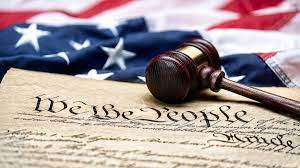G. Edward Griffin How to End the Fed
Title
William Jackson
Last Update sejam yang lalu
Header
G. Edward Griffin How to End the Fed
G. Edward Griffin How to End the Fed is working with James Corbett. Join the Weekly Video Call. Call 305-333-1925
Google AI Overview
James Corbett, through his website CorbettReport.com and his documentary "Century of Enslavement: The History of the Federal Reserve", heavily criticizes the Federal Reserve and its role in the US financial system.
Key Points of Criticism and Views:Secret Origins and "Creature from Jekyll Island": Corbett emphasizes the secret origins of the Federal Reserve at Jekyll Island, referring to it as the "Creature from Jekyll Island". He argues that the secrecy surrounding its creation allowed for its establishment and operation, keeping the public largely unaware of its existence and workings for decades.
Corrupt Debt-Based Money System: He views the Federal Reserve as being at the heart of a "corrupt debt-based money system" that needs to be abolished.
Federal Reserve Act and Control of Money Supply: Corbett argues that the Federal Reserve Act signed in 1913 effectively transferred control over the American money supply to a "cartel," described as a "well-organized gang of crooks".
Failure to Achieve Price Stability: He believes the Federal Reserve has failed in its mandate to maintain price stability, citing inflation as evidence.
Manipulation and Blacklisting of Information: Corbett has also discussed the issue of information about the Federal Reserve being potentially manipulated or blacklisted on platforms like YouTube, citing a situation where search results for "federal reserve" and "Century of Enslavement" were allegedly impacted.
Impact on Freedom and Choice: He contends that the financial structures, like college loans and job demands, can limit individuals' freedom and choices, illustrating the effects of the financial system.
"Century of Enslavement" Documentary:
This 90-minute documentary explores the history of the Federal Reserve, drawing on sources like Carroll Quigley's writings.
It serves as a "masterful deconstruction" of the "Creature from Jekyll Island" and argues for the necessity of getting rid of the Federal Reserve.
The film explores questions like the origins of the Federal Reserve system, its relationship to the federal government, how it creates money, and why the public is generally uninformed about these matters.
The documentary is available through various platforms, including YouTube, archive.org, and BitChute.
Overall, Corbett's perspective on the Federal Reserve is highly critical, portraying it as a secretive and powerful institution responsible for significant economic issues and a corrupt monetary system.4:23 PM Customer Support (System Message)
The Corbett Report
https://corbettreport.com › the-feds-doomsday-book-ha...
May 26, 2024 — Thomas Massie had previously co-sponsored the Federal Reserve Board Abolition Act. Massie says with a grin: ”What's fascinating to me is that 10 ...4:25 PM Doomsday Book
corbettreport.com
https://www.corbettreport.com › cache › Dooms...
Jun 21, 2022 — Your request is being treated as a request under the Federal Reserve Bank of New York's. (the “New York Fed”) Freedom of Information Policy (the ...4:25 PM Book https://www.corbettreport.com/cache/DoomsdayBook.pdf4:28 PM
G. Edward Griffin End the Fed
The creature from Jekyll Island
Book by G. Edward Griffin
This is the classic exposé of the Fed that has become one of the best-selling books in its category of all time. Where does money come from? Where does it go? Who makes it? The money magician's secrets are unveiled.
Originally published: July 1994
End the Fed
Book by Ron Paul
End the Fed is a 2009 book by Congressman Ron Paul of Texas that critiques the United States Federal Reserve System and advocates for its abolition. Paul argues that the Federal Reserve is unconstitutional, economically harmful, and a threat to individual liberty.
Originally published: September 16, 2009
When was Article 1 Section 10 of the national Constitution changed?
Book
Contact Us we have the book.
I would like to access the Federal Reserve Bank of New York manual known as the “Doomsday Book”. The “Doomsday Book” is a compendium of legal opinions, in some cases stretching back decades, that explore the legal limits of the Federal Reserve in the event of a financial crisis.
Book Transcript
33 LIBERTY STREET, NEW YORK, NY 10045-0001 BARRY SCHINDLER FREEDOM OF INFORMATION OFFICER T 212.720.5000 E [email protected] W www.newyorkfed.org June 21, 2022 VIA E-MAIL Emre Kuvvet Associate Professor of Finance Nova Southeastern University [email protected] Dear Mr. Kuvvet, This letter is in response to your letter received on May 23, 2022. Your request is set forth below in relevant part: “I would like to access the Federal Reserve Bank of New York manual known as the “Doomsday Book”. The “Doomsday Book” is a compendium of legal opinions, in some cases stretching back decades, that explore the legal limits of the Federal Reserve in the event of a financial crisis.” Your request is being treated as a request under the Federal Reserve Bank of New York’s (the “New York Fed”) Freedom of Information Policy (the “FOI Policy”), a copy of which is available at https://www.newyorkfed.org/aboutthefed/freedom-of-information-requests.html. Please note that the Federal Reserve Bank of New York (the “New York Fed”) is not subject to the Freedom of Information Act (“FOIA”) although it complies with the spirit of FOIA when responding to requests of this type. Based on the information you provided, a search was conducted, and attached are two documents consisting of a total of 122 pages that are responsive to your request. Please note that portions of these documents have been redacted as they are exempt from disclosure under exemption 6 of the FOI policy. Additional responsive documents were located but have been withheld as exempt from disclosure under exemption 5 of the New York Fed’s FOI Policy. Information on how to file a request for reconsideration may be found in Section 3.8 of the New York Fed’s FOI Policy. Sincerely, Barry Schindler Freedom of Information Officer (b) (6)
Contact Us
Join the Weekly Video Call
Call 305-333-1925

